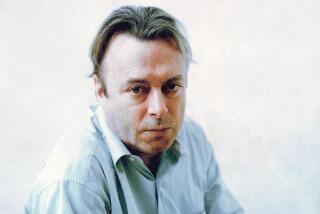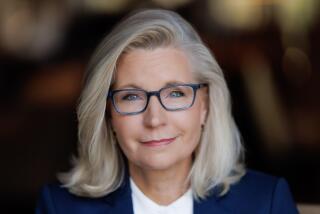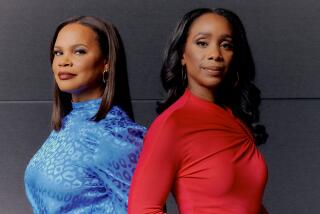Christopher Hitchens’ first loyalty was to the truth
- Share via
I met Christopher Hitchens only once. It was in 2007, at BookExpo America, the publishing industry trade show, where we both were on a panel about the ethics of book reviewing. Hitchens, who died Thursday of esophageal cancer at age 62, dismissed the very premise of the discussion — ethics, he suggested, was a matter of action more than intention.
To illustrate the point, he told the story of someone who had reviewed one of his early efforts badly; when, sometime later, Hitchens was asked to review a book by the same writer, he jumped at the chance. The catch, though, was that the book was brilliant, leaving him no choice but to give it a rave. This, he concluded, was what ethics in reviewing meant: that, regardless of your feelings for an author, your first loyalty was to the truth. So much for conflict of interest. The only conflict Hitchens recognized was with himself.
In many ways, I feel a bit like that in regard to Hitchens; I had my issues with him, but I never doubted his integrity. When, after his 2010 cancer diagnosis, he was asked if he planned to rethink his notorious atheism (the subject of his 2007 bestseller “God Is Not Great”), he scoffed at the question, as if it were ridiculous — which it was.
PHOTOS: High-profile Hitchens’ targets
It’s not that he wasn’t willing to change his mind: In the wake of the Sept. 11 terrorist attacks, he publicly disavowed a lifetime of liberalism, lining up with the Bush administration’s war on terror and supporting the war in Iraq. I bristled at that decision, but even so, I admired his willingness to stand up for it, as vociferously and (often) confrontationally as he could.
That was the thing about Hitchens — agree with him or not, it was impossible not to be stirred by his willingness to stake out unpopular positions, to say things that others weren’t willing to say. In the 1990s, he wrote a book attacking Mother Teresa, then did the same to Bill Clinton, whom he considered “pathological as a liar.” He was an equal opportunity critic, taking on Henry Kissinger, Noam Chomsky, Sarah Palin and Gore Vidal. Among his role models? Thomas Paine, whom he described in 2007 as “part of the arsenal on which we shall need to depend.”
There’s something telling about such an image, with its notion of Paine — or, more accurately, Paine’s belief in “human rights, and … their concomitant in democracy” — as a weapon, one that is as necessary to the future as he was to the past. It suggests that Hitchens didn’t take anything for granted, that he knew vigilance is the best, perhaps the only, defense we have.
This is why he revered George Orwell also, for “his commitment to language as the partner of truth.” In his 2002 book “Why Orwell Matters,” Hitchens makes that idea explicit, rejecting a view of the author as a sanitized icon in favor of something more complex and profound. “I sometimes feel as if … Orwell requires extricating from a pile of saccharine tablets and moist hankies,” he wrote, “an object of sickly veneration and sentimental overpraise, employed to stultify schoolchildren with his insufferable rightness and purity.”
No one would have characterized Hitchens as “an object of sickly veneration and sentimental overpraise”; he could be a bully, and it sometimes seemed as if he’d rather shout down those with whom he disagreed than engage in conversation. But he was as committed to telling the truth as any of his great heroes, and nowhere as movingly as when he wrote about the illness that would take his life.
“Before I was diagnosed with esophageal cancer a year and a half ago,” he observed in his final column for Vanity Fair, “I rather jauntily told the readers of my memoirs that when faced with extinction I wanted to be fully conscious and awake, in order to ‘do’ death in the active and not the passive sense. … However, one thing that grave illness does is to make you examine familiar principles and seemingly reliable sayings. And there’s one that I find I am not saying with quite the same conviction as I once used to: In particular, I have slightly stopped issuing the announcement that ‘Whatever doesn’t kill me makes me stronger.’”
There you have it, a bit of gallows humor mixed with a coldblooded willingness to face reality head-on. He was a figure of prodigious tastes, a legendary smoker and drinker, a prolific writer of books and articles and columns, motivated, perhaps, by the knowledge that it would all end soon enough.
Or, as he put it earlier this year, at a Los Angeles debate on the afterlife with author Sam Harris and Rabbi David Wolpe: “It will happen to all of us that at some point, you get tapped on the shoulder and told not just that the party’s over, but slightly worse: The party’s going on, but you have to leave.”
PHOTOS: High-profile Hitchens’ targets
Times staff writer Carolyn Kellogg contributed to this report.
More to Read
Sign up for our Book Club newsletter
Get the latest news, events and more from the Los Angeles Times Book Club, and help us get L.A. reading and talking.
You may occasionally receive promotional content from the Los Angeles Times.








